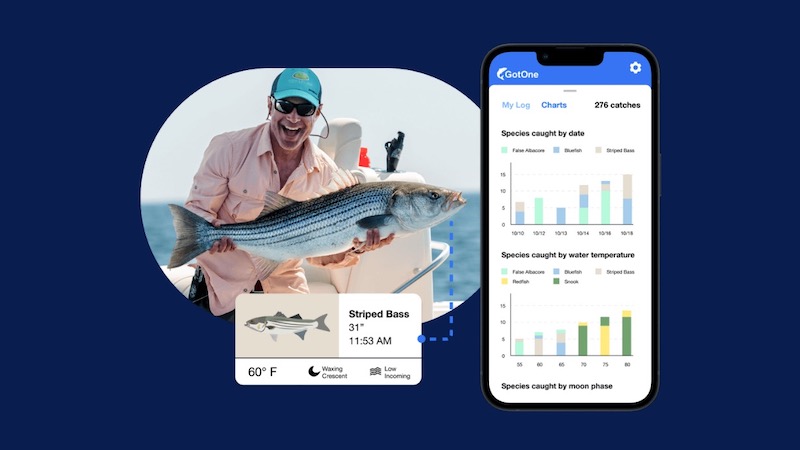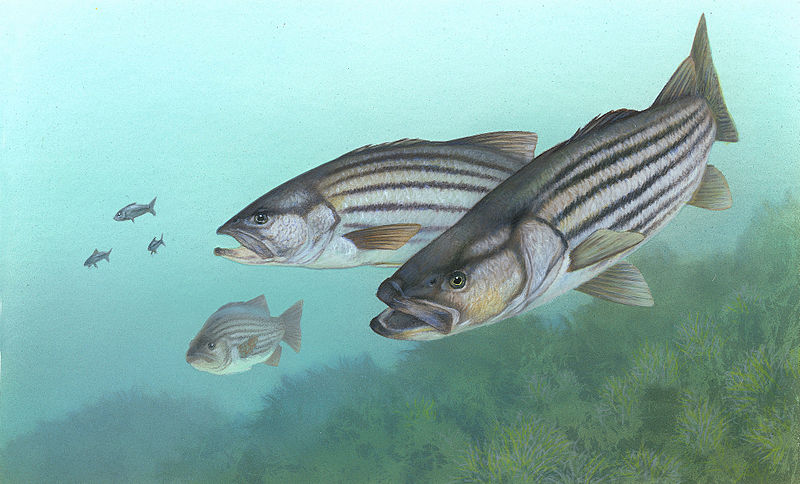
This is a game changer when it comes to data collection. If you’re a striped bass angler, see the link at the end of this post.
GotOne Media LLC is proud to announce the launch of its new mobile app GotOne, available for Android and Apple iPhone. Designed as a premier fishing log app, GotOne empowers anglers with data-driven insights, enhancing their fishing experience and contributing to vital fishery research.
The app was developed with support from leading conservation and fishing organizations, including The
American Saltwater Guides Association (the “ASGA”), The Nature Conservancy (“TNC”), and Hatch
Outdoors (“Hatch”). ASGA has worked closely with GotOne’s founder, Luyen Chou, over the past year to
ensure that the app protects anglers’ privacy while collecting the data needed to support fisheries
science and management.
GotOne shares aggregated and generalized fishing data with leading research and science
organizations to support fishery science and management. This means recorded catch data not only
contributes to making users better anglers, it also delivers unprecedented insights to inform the
research and conservation needed to protect important fish and fisheries. This is accomplished while
protecting GotOne users’ data privacy and fishing secrets. Personal fishing data is never shared without
the user’s permission. Aggregate data generalizes location information, so it’s useful for scientific
research applications but too general to “burn” anglers’ fishing spots.
“We created GotOne to help anglers catch more fish with data. Our mission is to allow users to carefully
track their catch histories by seamlessly linking caught fish to location, water temperature, tides, moon
phases, and other conditions,” said Luyen Chou, Founder of GotOne. “Conservation and the ability to
aggregate data collected from recreational anglers to help managers while generalizing location data
and protecting angler privacy has always been central to that mission. We are grateful for the support
ASGA, TNC, and Hatch are providing for our app development, and we are excited to continue working with
them and to future partnerships of this nature.”
“We have always been staunch supporters of leveraging the best available science to drive fishery
management decisions,” said Tony Friedrich, Vice President and Policy Director for the ASGA. “With
that said, by its nature, fishery science has blind spots in data collection, and we frequently hear from regulators that it can impact their ability to truly assess pressure, catch numbers and harvest up and down the coast. With GotOne and partnerships similar to this, we can assist management bodies by collecting data that can be used to aid in research and make stock assessments more robust. We believe this initial integration of a private-market product into state-led studies can change the game regarding the quality and quantity of data collected simultaneously across
relevant species and geographic ranges.”
“The Nature Conservancy is proud to support GotOne and ASGA in bringing innovative technology to
fisheries data collection. This partnership and platform are special because it’s fishermen designing a
system that works for them,” said Kate Wilke, Fisheries Scientist for The Nature Conservancy. “They’re
working with agency scientists to test the system to fill specific data gaps, and we’re
excited to see the platform and its utility grow.”
Download the app and start your log today.

ATTENTION STRIPED BASS ANGLERS!
As a follow-up to its 2020-2021 study on striped bass catch and release mortality, Massachusetts DMF has expanded its investigation of release mortality to include striped bass caught via artificial lures and flies. It seeks volunteer anglers to collect information using the GotOne app when they go striped bass fishing. Notably, this part of the study is not restricted to anglers located in Massachusetts, and the more data it can collect, the better its conclusions will be.
To participate, click here to become a Striped Bass Citizen Scientist.





